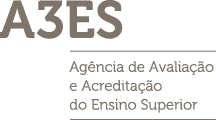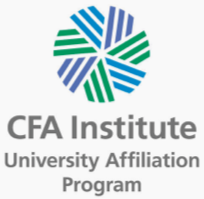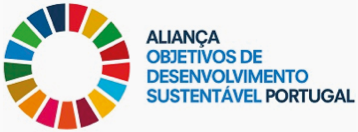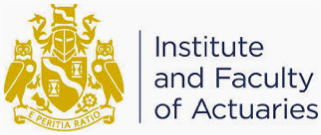
ISEG introduced the new MiM in 2020, an innovative way for forward-thinking students and professionals to get a unique and full range experience in business management. If you want to make a difference in the corporate world, this is the course to take.
The MiM was built around the future of the workplace. It’s where you’re headed, after all. The master’s programme, accredited by the Agency for Assessment and Accreditation of Higher Education (A3ES), will place management in a more technological and digital world, requiring stronger analytical and quantitative skills.
Our intention is to develop a new generation of conscientious managers and leaders for all kinds of organisations. All course units were carefully designed to make you think about the overall future impact of decision-making in any organisation or company. And by embracing the 2030 Agenda of the United Nations and the 17 Societal Challenges summarised in the SDGs.
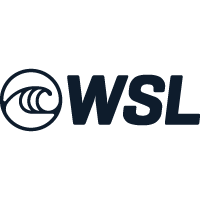 | World Surf League Merit Award Prize awarded by World Surf League to the best student in the 1st year of the Master in Management (MiM). |

Highly qualified faculty with PhDs from world-class universities (London Business School, University of Delaware, Alliance Manchester Business School, Imperial College Business School, Carnegie-Mellon University, and much more).
Prepares you for the reality of a demanding workplace in terms of technical and quantitative skills with strong data analytics.
Framed around the United Nations’ Sustainable Development Goals: from Accounting to Marketing or Economics, everything you learn is put into context – you make a difference when you decide.
ISEG crafts professionals and leaders for all kinds of organisations – we do not format you; we let you choose what you want to develop into.
Uses a mix of instructional methods, with real-life cases and data, as well as a simulation management game, preparing you to think and act.
Allows you to choose three electives and earn a specialisation, a major, of your selection.
A one-year full-time programme (plus one semester for the masters final project) preparing you to stand out in a competitive marketplace.

Framed within the United Nation’s 17 Sustainable Development Goals (SDGs) and all management areas are taught and discussed taking the SDGs into account. The general objectives of the Master in Management are as follows:
To focus on sustainability in a more digital world, from the “hardest” (including coding) to the “softest” (including presentation skills) skills.
To develop technical management knowledge, including strategy, finance and accounting, marketing, and human resources management.
To advance core personal competencies for continuous learning and adaptation in working life, considering the volatility and uncertainty of today’s business environment.
To develop skills for responsible management converging with the challenges of sustainable development.
To foster skills in information selection and processing, alternative assessment and decision making.
To promote critical thinking and problem-solving skills.
To grow competencies to carry out a structured project in the form of the final master’s work.
To develop a network of contacts relevant to the students’ professional careers.



Framed within the United Nation’s 17 Sustainable Development Goals (SDGs), the MiM program is fully developed to prepare students to be the managers responsible for the future: all management areas are taught and discussed taking the SDGs into account.
The study program is spread across 3 semesters, with a total of 90 ECTS, of which 30 ECTS (the 3rd semester) correspond to a final work (dissertation, project or internship report).
All mandatory course units will be taught in English. Core courses and electives are daytime classes.
| Year 1 – Semester 1 | Credits |
|---|---|
| Week 0 Global Goals Awareness Week (mandatory) Breaks the ice and immerses you in the downtown Lisbon lifestyle, allowing you to become aware of the biggest challenges our world is facing – and think about what you can do about it. | |
| Week 1-6 • Financial and ESG Reporting • Business Strategy and Performance • Organisational Culture and Behaviour • Global Economic Trends • Operations Management | 3 3 3 3 3 |
| Week 7 • Assessment Week | |
| Week 8-13 • Financial Markets and Management • Marketing Management • Leading People in the 21st Century • World Business Environment • Excel & Python Analysis | 3 3 3 3 3 |
| Week 14 Global Goals Action Week (mandatory) Takes you to the next level: Time to act, be relevant! |
| Year 1 – Semester 2 | Credits |
|---|---|
| Week 0 What About Me? Week (mandatory) Time to think about what you want for yourself, and how to develop the skills you need. | |
| Week 1-6 • Quantitative Data Analysis • Management Information Systems | 3 3 |
| Week 1-6 Choose your Major*: • Strategic & Marketing Management • Financial & Operations Management • Business Data Analytics | 9 |
| Week 7 HERO Week (mandatory) Human Ethical Responsible Organisations | 3 |
| Week 8-13 • Qualitative Data Analysis • Global Management Challenge Simulation | 3 3 |
| Week 8-13 Choose your Major*: • Strategic & Marketing Management • Financial & Operations Management • Business Data Analytics | 9 |
| Year 2 – Semester 1 | Credits |
|---|---|
| Week 0 Choose Your Path Week (mandatory) Decide which final piece of work you want. | |
| Week 1-13 MiM Final Work • Path 1: Corporate Internship Project • Path 2: NGO Internship Project • Path 3: Experimental Research Project • Path 4: Entrepreneurship Project • Path 5: Consulting / Business Case Project • Path 6: ISEG ULisboa Project | 30 |
*You choose one major. For each major, there will be six (6) mandatory courses, taught entirely in English and distributed in two blocks in the Second Semester (1st Year).
| Majors | Credits |
|---|---|
| Strategy & Marketing Management • Digital Strategy & Business Transformation • Corporate Governance and Social Responsibility • Customer Buying Behavior and Social Influence • Digital Marketing and AI Integration • Sustainable Brand Management • Employer Branding | 18 |
| Financial & Operations Management • Management Control Systems • Data Analytics for Financial Decision Making • Essentials of Corporate Finance • Business Risk Management • Sustainable Investments Management • Assets and Portfolio Management | 18 |
| Business Data Analytics • Cibersecurity • Programming Python for Data Science • Database Management • AI for Management • Big Data and Business Analytics • Data Visualisation | 18 |
Syllabus for the 2025/2026 academic year approved by the ISEG Scientific Council and subject to approval by A3ES.
A Double Degree broadens the options and professional horizons that are available for you.
This is an excellent opportunity to challenge yourself academically, allowing you to grow internationally and expand your network.
Apart from these assets, you will also get 2 diplomas, from ISEG and EM Normandie’s.
To be admitted to this partner university, you need one of these official scores in English: IELTS 6.0, TOEIC 790 or TOEFL 83. You must have an academic average of 14/20, from the 1st semester of the 1st academic year, of the MiM.
To obtain both EM’s and ISEG’s Master’s degrees, your full first year of graduate studies (60 ECTS) will be completed at ISEG and your remaining graduate studies (60 ECTS) will be completed at EM. You will complete 2 semesters at EM and your studies begin at ISEG in the Fall semester.
| Fall semester at ISEG Beginning of September to January | Spring semester at ISEG End of January to June |
| Fall semester at EM Normandie From August to December* | Spring semester at EM Normandie From January to April* |
| Internship abroad 6 Consecutive months (in Portugal or abroad)** | Thesis at ISEG Submission until January (3rd Academic Year)*** |
The students that wish to participate at EM Normandie’s graduation ceremony, must submit the thesis until October 15th.
You will take graduate (Grade de Master) at EM Normandie.
You may choose from one of the following Master specializations in one of EM Normandie campus. See below:
These are provisional tuition fees for 2025/2026, subject to confirmation by the Universidade de Lisboa statutory bodies.
| Students from | First Year (1st and 2nd Semesters) | Second Year (3rd and 4th Semesters) | Third Year (5th Semester) | Total |
| Within the European Union | € 5,800 | € 7,800 | € 2,000 | € 15,600 |
| Outside the European Union | € 7,500 | € 7,800 | € 3,500 | € 18,800 |
Applications for all masters at ISEG are online.
Candidates for the Master in Management are:
All candidates should have an excellent command of the English language, written and spoken.
Applications for the MIM program will be assessed based on a calculated SCORE using the following criteria, with a maximum of 20 points achievable:
Criteria:
Note: The aforementioned calculation applies to candidates who fulfill the program’s prerequisites.
In some cases, the Masters Coordinating Team may conduct interviews with applicants as deemed necessary.
All candidates should have an excellent command of the English language, written and spoken.
These are provisional tuition fees for 2025/2026, subject to confirmation by the Universidade de Lisboa statutory bodies.
| Students from | First Year | Second Year | Total |
| Within the European Union | € 5,800 | € 2,000 | € 7,800 |
| Outside the European Union | € 7,500 | € 3,500 | € 11,000 |
Financial restrictions should never come in the way of your access to higher education, and that is why we believe in providing equal opportunities for everyone.
A specific tuition fee payment schedule may be agreed upon request by the student.
If you are not an EU, EEA, or Swiss citizen, you need a Student VISA.
Once you have decided to join the master’s programme and paid the 1st tuition fee to secure your place, you can issue the acceptance letter on the FENIX Portal. This document will be needed later to apply for a Student Visa. The student visa must be requested at the nearest Portuguese Embassy or Consular Office in the country of origin.






